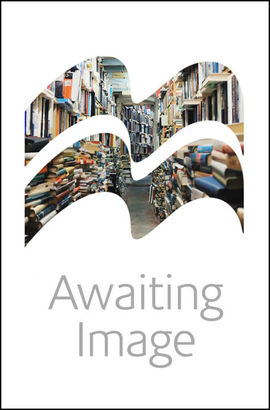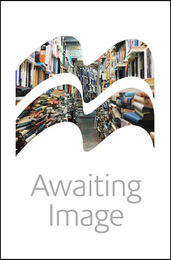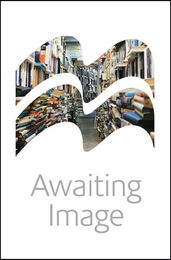
Unseen Hand
Adam Zagajewski
Translated by Clare Cavanagh
Synopsis
A brilliant new collection from a master world poet
One of the most gifted poets of our time, Adam Zagajewski is a contemporary classic. Few writers in poetry or prose have attained the lucid intelligence and limpid economy of style that are the trademarks of his work. His wry humor, gentle skepticism, and perpetual sense of history's dark possibilities have earned him a devoted international following. This collection, gracefully translated by Clare Cavanagh, finds the poet returning to the themes that have defined his career—moving meditations on place, language, and history. Unseen Hand is a luminous meeting of art and everyday life.
Details
Reviews
“Not so long ago we had two incredible voices--Neruda and Milosz. Now we have Adam Zagajewski, who also speaks passionately from both the historical and the personal perspective, in poems reduced to a clean, lyrical clarity. In one poet's opinion (mine), he is now our greatest and truest representative, the most pertinent, impressive, meaningful poet of our time.” —Mary Oliver
“Zagajewski's poems pull us from whatever routine threatens to dull our senses, from whatever might lull us into mere existence.” —Philip Boehm, The New York Times Book Review
“As the title suggests, Polish poet Adam Zagajewski's new book Unseen Hand is a book of hidden things. By this we mean the poems move in and out of revealing and concealing, each poem an elegant exploration of history, both personal and global . . . Zagajewski's poetry reflects on the unseen impressions we leave on each other and the physical world around us, the indirect intimacy of human interaction . . . Thoughtful and meditative . . . We as readers . . . experience the steady unveiling of the unseen and the unspoken through Zagajewski's language.” —Kelly Forsythe, Newcity Lit
“In his new book, Zagajewski stakes out, as firmly as ever, the position of poetry in a world where language's metaphysical registers have been largely usurped by the forces of political oppression . . . Yet these poems oppose grand pronouncements . . . we see Zagajewski's continual evolution toward elegy and memory, but the role of poetry is still both vital and deeply limited . . . these new poems, pitched at a register slightly lower than that of praise, offer a sort of quiet surprise--occasionally even delight--born out of wise and hard-earned skepticism.” —Publishers Weekly
“The poems of Unseen Hand, translated by the admirably consistent Clare Cavanagh, move through the various locales of Zagajewski's life; from his Polish upbringing in Lvov and the provincial garrison town of Gliwice . . . to various stints in Krakow, Paris, and Chicago . . . Zagajewski is especially perceptive of the ways the past is channeled through the present -- his ‘now' tends to carry the authority of an ‘always' . . . Zagajewski's skill with subtle tensions doesn't stifle his playful nature . . . As always with Zagajewski, we are ultimately responsible for the way we experience our own lives, how we value the inheritance of the past, and how open we are to those ‘moments without an hour.'” —Michael Brodeur, The Boston Globe
“Zagajewski . . . blends past and present, mundane and mysterious in all his word. His new collection has a conversational, unadorned style reminiscent of William Carlos Williams . . . The best poems establish a contradiction that is resolved at the end by paradox . . . melancholy yet hopeful.” —Diane Scharper, Library Journal
“Adam Zagajewski's radiant poetry is a gift. It offers a chance to ponder the vagaries of human experience in the company of a uniquely sensitive, patient, hospitable companion, who maintains a capacity for childlike wonder in concert with maturity. His work is also an example of what art can achieve now, in defiance of theorists who insist that poetry is no longer an authentic possibility, that we are trapped in our own small, stifling self.” —Ian Marcus Corbin, The Weekly Standard
“Insightfully translated from the Polish by Clare Cavanagh, Zagajewski's latest poems celebrate the twofold pleasures of recollection and meditation . . . Zagajewski is particularly interesting when he writes about his beloved cities: Lvov . . . whose inhabitants appears ghost-like in his dreams and on photographs, and Cracow, which he reproduces in all its old-fashioned splendor . . . Of particular note are the several poems that describe his lonely wanderings through Cracow's Jewish corner. The setting is often nocturnal, the tone mournful . . . Zagajewski acknowledges that history takes its course regardless of any poet's contribution.” —Piotr Gziazda, Times Literary Supplement
“Zagajewski has cultivated, through his travels, a supremely long-range view, as if the trials of the past might be understood in the present, if not explained or justified. Like the hymn the collection's title perhaps alludes to, this is a poetry that journeys across a weary earth but aspires to quiet rapture. In the final poem, ‘Carts,' even ‘carts full of hay' feel shadowed by deportations. Transport is not always freeing. These carts ‘abandoned the town / in greatest quiet.' There are ‘cautious glances' and ‘archives' in which ‘men calculate the losses.' Yet there is also life's undeniable pull.” —Joseph Campana, Houston Chronicle




